Working Holiday Job in an Irish Pub in Tokyo
related posts
Working Holiday Job in an Irish Pub in Tokyo
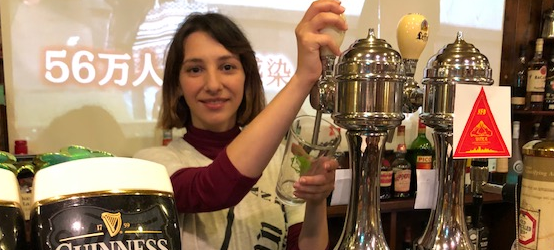
Working Holiday Job in an Irish Pub in Tokyo
We met Jessica P. (28), a half Italian half German Working Holidayer, who is currently jobbing in an Irish Pub in one of Tokyo’s busy business and college districts. Before Jessica’s shift on a rainy Friday night started, we were allowed to visit the pub and interview her about her job and her exciting life besides work.
Jess, thank you and thank you to your boss for letting us interview you here before opening hours! How did you land this job?
My pleasure! Well, a former roommate of the share house I’m living in had been working here before. She told me that she would quit her job, because she needed to go back to her country. She knew that I was searching for a job and offered me to hand my resume to her boss, because they were of course searching for a replacement for her. In the end they didn’t even want to have a look at my resume before meeting me. My roommate just set up the interview between me and the boss in the pub and I brought my resume on that very day. It was a casual and rather easy-going interview. I got the job on the spot.
Did they expect special skills from you? Meaning, did the job come with certain requirements?
During the interview they of course asked me, if I had experience in catering work. I had been helping out on events back home, but had no experience working in a restaurant or bar. Therefore having certain catering experience might have been a plus, but it wasn’t mandatory to get the job. Skills that are really needed for the job, such as tapping beer, are taught by the supervisor. I’m still learning a lot at the moment.
Nevertheless, during the interview I pointed out that I have experience in working with clients and that I can get on well with people. I think that was one of the main reasons that I scored.
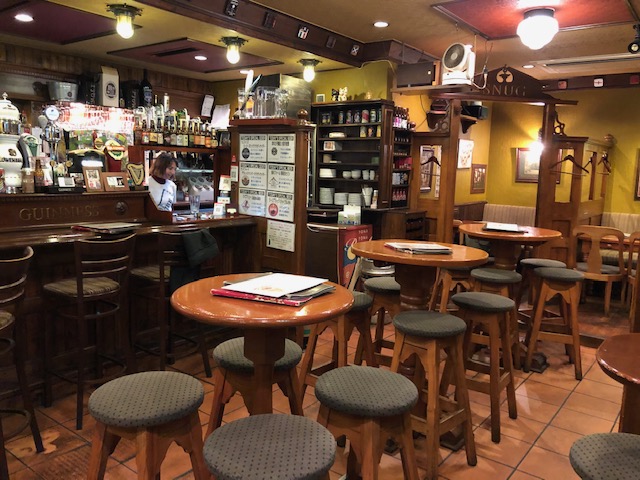
Also Japanese skills weren’t needed, neither speaking or writing. I speak some basic Japanese, but for example the two other part timers here don’t speak it at all and still can manage to work here. Although I think it goes without saying that everyone should do their homework before starting a job. For me it was to learn at least a few phrases such as “What would you like to drink?” and so on. Anyway, a lot of customers can speak English. And I also think that many of them come here especially because they like to speak English and because they want to emerge into a foreign atmosphere.
How many times a week are you working here?
From the beginning I was searching for a job with 2-3 shifts a week. And luckily my boss wanted exactly someone like that. My shifts start at either 5pm or 6pm and end at 11pm.
By the way, the nice thing about Tokyo is that you can easily have more than one part time jobs at once. Many of my friends work one job Monday and Tuesday, another one Thursday and Friday, and maybe a third one on the weekend. Thanks to that you can experience different sides of the city, various types of jobs and of course meet all kinds of people.
What are you doing besides working?
The pub is the only place I’m working at right now. Which is exactly what I want, because besides that I also want to make time for a project I’m working on with a group of friends. We are trying to establish an international community where Japanese and foreigners have the opportunity to meet one another. We are organising for example girls parties or international picnics. Let’s see what can come out of it.
This is one of the wonderful things about life here: you arrive as a working holidayer, with no special expectations, and you end up in a great international group of friends that you can explore the city with.
How does a typical shift at the pub look like?
Usually when I arrive at 5pm I have to start with cleaning tasks, such as wiping the counters, vacuum cleaning and disinfecting the tables. Also cleaning the toilet is a part of it. From 6pm we open and the first customers arrive. From there it’s the usual pub work that most people can imagine. Like taking orders, issuing bills, cashing in, serving the drinks and dishes.
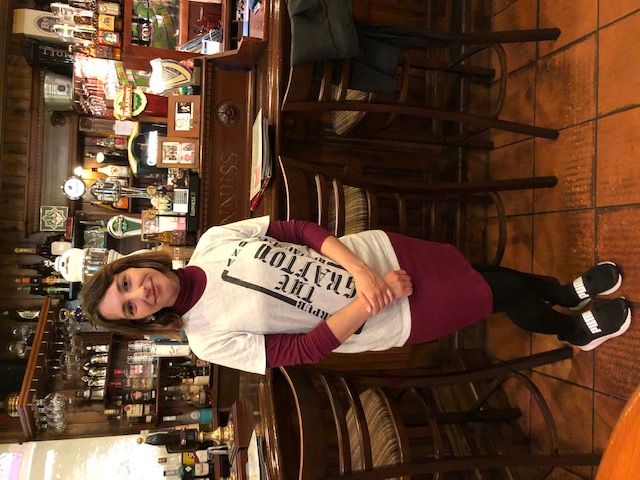
I have two breaks, both quite short, but I don’t mind, because the workflow is generally not too stressful or strict. In between tasks, when everyone is served, I can even check my phone or just chat with other team members and also guests. In the second break I eat my dinner.
May I ask about your salary?
Here in the pub I earn 1,050 JPY an hour. From 10:30pm it’s a little bit more, because it’s considered as the late night shift. Plus I’m getting 500 JPY for commuting and one dish a shift.
What happened to your job during the state of emergency that Tokyo declared during the Corona crisis?
As advised by the government, the pubs opening hours were of course shortened. We have a lot of regular customers, meaning, they come here after work several times per week, and even though we had the crisis, they luckily still came. They work in the close by business districts or even live close.
I myself couldn’t work during the state of emergency. I have a chronic illness that I need to take medicine for, therefore I belong to the risk group. Both my doctor back home and my Japanese doctor here recommended me not to work with people and to really stay at home. I was a little scared that I’d lose my job. But when I told my boss about it he accepted it without any resistance. During my long absence he even let me know several times that the team was looking forward to me returning back to work, as soon as it’s possible. Another one of my co-workers had the same problem as me. I was happy having such an understanding workplace, although I believe that many Japanese bosses have compassion during these hard times.
Do you have any last tips about job searching in Tokyo on a Working Holiday visa?
Just go for it! I’m usually someone who needs to plan everything ahead and have structure in what I’m doing. But a Working Holiday is THAT chance to NOT have everything written in stone yet. Just make sure of one thing: save up some money before coming. Situations like the current Corona pandemic can’t be planned ahead, and it’s always good to have a financial buffer for cases like that. Generally the life here is not as expensive as I had imagined it. That’s maybe because I live in a share house, which is one of the most money saving styles of residing here as a foreigner in Tokyo.
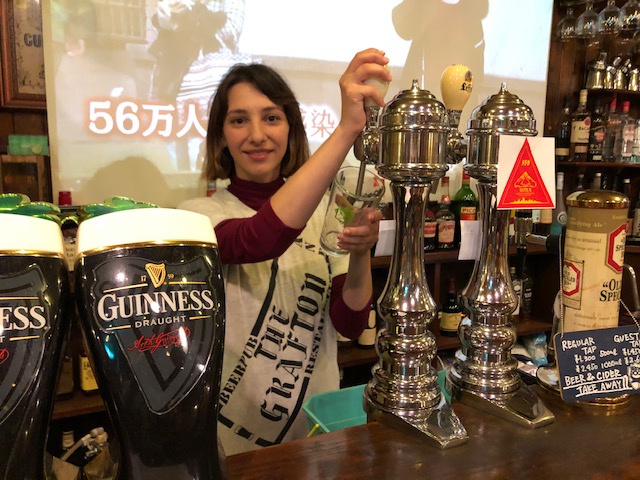
Don’t go into this experience thinking it’s extremely hard to find a job. For example, many of my friends here just walked into a restaurant or cafe and asked if they had an opening. By embracing chances they found their jobs. Just do your homework before applying anywhere, such as what is the minimum wage, so no one screws you over.
And connections are important. As I said, I found my job through a roommate. For other people in my shared house it was the same. If you are surrounded by people, you will get offers, if you are open for them. And don’t be afraid that you don’t find friends. You will be socialized in no time, if you put yourself out there.
Jessica is a state-approved educator and was active for 8 years as a social worker in schools in both Germany and Switzerland before coming to Japan. Visiting Japan has always been her dream. Since coming for a vacation in 2019, the thought of working and living in Japan didn’t let her go anymore. A Working Holiday seemed like the perfect opportunity to get to know the culture and language even better. Jessica is planning to switch to another visa after the Working Holiday visa expires and to stay in Japan.

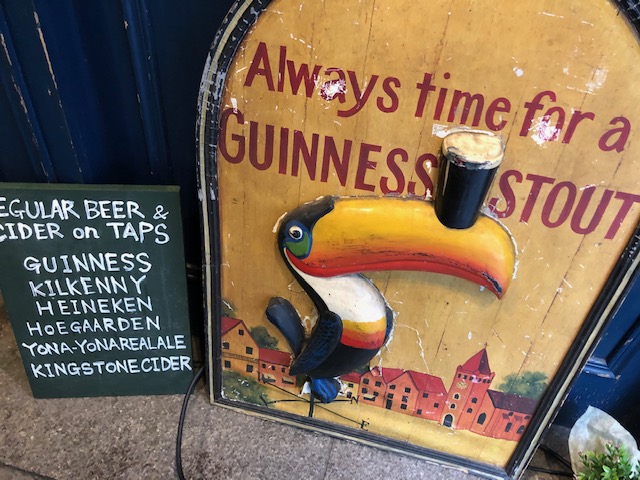
Leave a Reply
You must be logged in to post a comment.